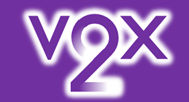Epidemija koronavirusa (Covid-19 / SARS-Cov2) - dnevne aktuelnosti iz zemlje i sveta
Dragi forumaši, molimo vas da u vreme ove krize ostanemo prisebni i racionalni i da pisanjem na ovoj temi ne dođemo u situaciju da naudimo nekome. Stoga:
- nemojte davati savete za uzimanje lekova i bilo kakvu terapiju, čak i ako ste zdravstveni radnik - jedini ispravni put za sve one koji eventualno osećaju simptome je da se jave svom lekaru ili na neki od telefonskih brojeva koji su za to predviđeni.
- takođe - ne uzimajte lekove napamet! Ni one proverene, ni one potencijalne - obratite se svom lekaru!
- nemojte prenositi neproverene informacije koje bi mogle nekoga da dovedu u zabludu i eventualno mu načine štetu. Znamo da je u moru informacija po pitanju ove situacije jako teško isfiltrirati one koje su lažne, pogrešne ili zlonamerne, ali potrudite se - radi se o zdravlju svih nas. Pokušajte da informacije sa kojekakvih obskurnih sajtova i sumnjivih izvora ne prenosite. Ili ih prvo proverite pre nego što ih prenesete.
- potrudite se da ne dižete paniku svojim postovima - ostanimo mirni i racionalni.
- aktivno propagiranje naučno neutemeljenih (između ostalih i antivaxxerskih) stavova i pozivanje na nevakcinisanje bazirano na njima nećemo tolerisati.
Budimo dostojanstveni u ovoj krizi, ovakve situacije su ogledalo svih nas.
Hvala na razumevanju.
Vaš tim Vox92
Vakcinacija
194 members have voted
-
1. Da li ste vakcinisani protiv Coronavirus-a i kojom vakcinom?
-
Pfizer/Biontech
-
Sinopharm
-
Sputnik V
-
Moderna
-
AstraZeneca/Oxford
-
Johnson & Johnson
-
Nisam i ne želim da se vakcinišem
-
Nisam još sigurna/an da li ću se vakcinisati
-
Preležao/la sam Covid-19, pa čekam da vidim da li i kada ću da se vakcinišem
-




Recommended Posts
Create an account or sign in to comment
You need to be a member in order to leave a comment
Create an account
Sign up for a new account in our community. It's easy!
Register a new accountSign in
Already have an account? Sign in here.
Sign In Now